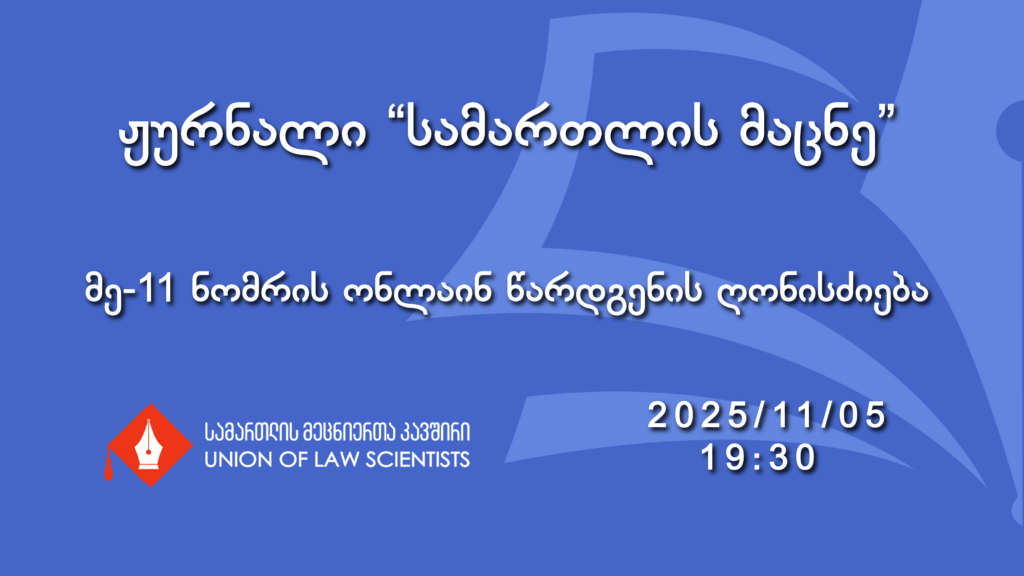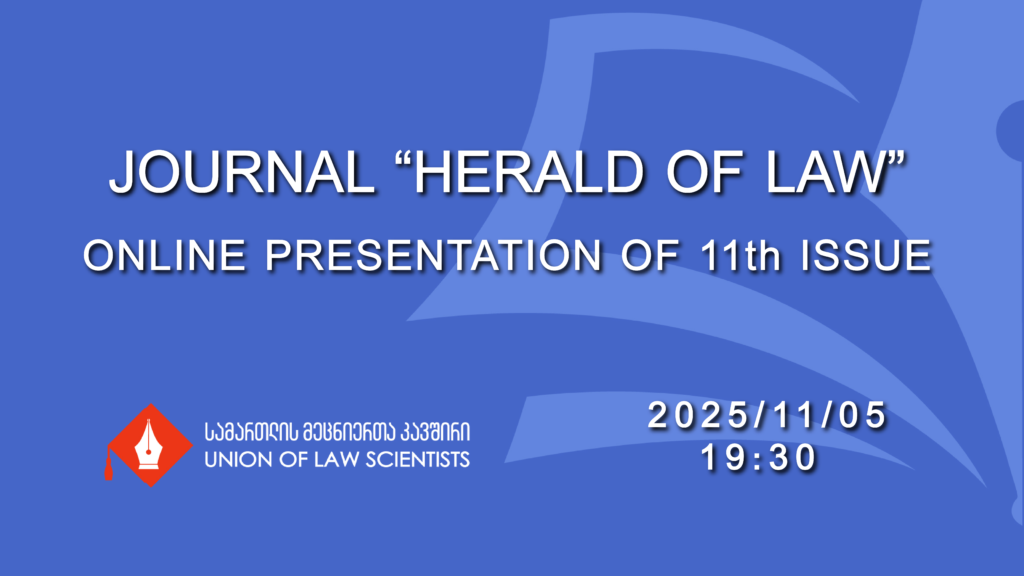The issue of the compatibility of indirect intent in formal crimes (on the example of the illegal deprivation of liberty)
Abstract:
The present article discusses the legal possibility of the compatibility of indirect intent in formal types of crimes. In this regard it should be noted, that the indirect intent in criminal law, considering its legal construction, is characterized by certain peculiarities, which is manifested in the fact that the time the criminal is aware of the illegal nature of his action and also the possibility of the expected illegal result arising from it with a high degree of probability, that he does not really want to, however, due to certain circumstances, he consciously allows or is indifferent to its occurrence.
Based on the abovementioned, determining the subjective attitude of the offender to the result provided for in the composition of the crime is of essential importance for determining the indirect intent. Accordingly, legal realization of indirect intent can be implemented only in material (consequential) crimes. Thus, the question of the compatibility of indirect intent in formal (unsuccessful) crimes is interesting, since at this time the result is not a sign of the composition of the crime.
According to the abovementioned, based on the analysis of the legal nature of indirect intent and formal crimes, the issue of the possibility of their legal relationship is discussed in this article.
Keywords:
Conscience, Action, indifference, Allowance, Result










